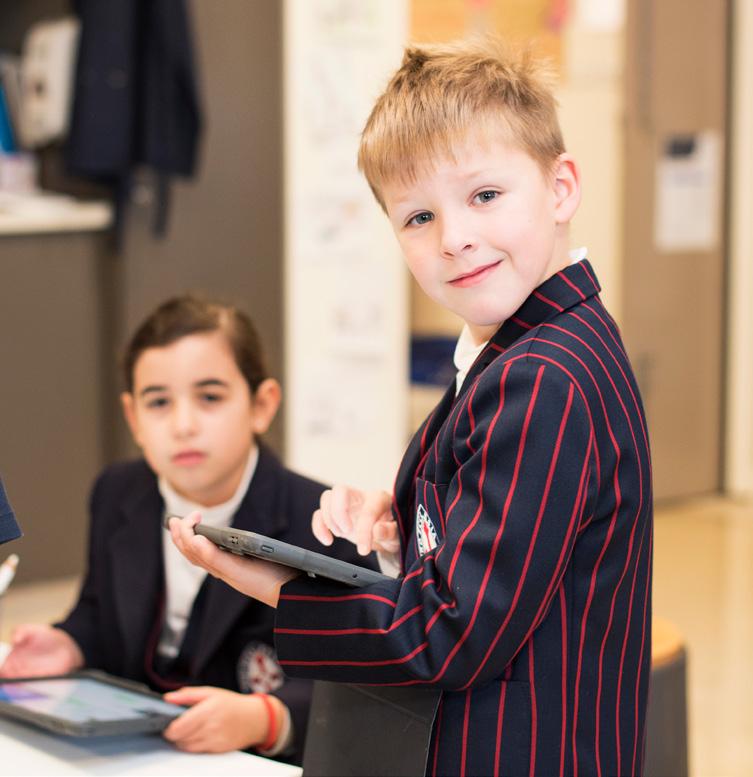
2 minute read
Embedding a culture of safety online
Our students are at the heart of our collaborative decisionmaking in several key areas related to technology, and their agency is important in fostering curiosity to understand our complex world. Recent updates to Child Safe Standards have amplified the importance of schools promoting safety and wellbeing in online environments, while minimising the opportunity for young people to be harmed. In addition to policies and interrelated measures in place internally to protect students, our staff design authentic experiences and seize meaningful opportunities for students to learn and apply socially responsible and ethical practices when using technologies to support learning.
St Michael’s has a rich history of technology use, from the first notebook device program in 1998, to progressive online continuous feedback practices, Virtual Reality (VR) aligned within the curriculum and diverse STEM-based opportunities. Online and offline, we continue to cultivate strong foundations to prepare students to be positive contributors to society. Recent circumstances have required greater reliance upon technology to both learn and maintain connection. This has also surfaced issues we must collectively address such as redefining our relationship with devices, technology companies’ collection and use of data, cyber security vulnerabilities of organisations and the prominence of emerging Artificial Intelligence (AI) tools.
Embedding a healthy culture of online safety across the School requires curated access to tools and learning platforms, combined with a synergy between students’ developing mindsets of positive contribution online, our DRCC values in actions, and a scaffolded technical skillset that provides them creative confidence. Across our curriculum, safe and ethical use themes specifically address managing digital reputation, respect for intellectual property and creative processes, personal data practices as well as learning the importance of help-seeking behaviours and healthy online interactions with others.
Several Junior School students were showcased in a news article and video in February developed by the Alannah and Madeline Foundation. After completing a Digital Licence+ program (aligned with the School’s eSmart Membership) our students spoke articulately about their evolving understanding of technology, challenges navigating online environments and different scenarios. Like any form of licence, these learning experiences are ‘just in time’ opportunities for development of knowledge and evidencing understanding that will continue to be enriched by individual experiences, increased self-regulation and age-appropriate learning opportunities addressing increasingly complex themes.
Our Senior School curriculum provides opportunities that require an awareness of appropriate behaviours and skills when using online tools including social media, with specific themes such as privacy, consent, respectful relationships and explicit online content. Personal wellbeing (as our subject is aptly titled) for many young people is intrinsically associated with their relationship with technology and their consumption of digital media. With ubiquitous access to text and image generative AI technologies now emerging, we are also committed to unifying staff, students and parents mindsets, encouraging both the effective and ethical engagement with such tools.

Technologies will continue to rapidly evolve - with and without safety built-in by design. Appropriate guidelines and guardrails will enable us to continue to foster creativity and inquiry with technology, while acknowledging our collective responsibility to nurture young people’s ability to connect safely with purpose, reflect regularly upon their online use, and act to protect themselves and others.
Mr Matt Heinrich Director of Learning Technologies and ICT










